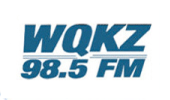Patoka Sportsman 9-28-19
Patoka Sportsman 9-28 & 9-29-19
The following hunting seasons will open in October:
- Wild Turkey Fall Archery: Oct. 1 – 27
- Deer Archery: Oct. 1 – Jan. 5, 2020
- Woodcock: Oct. 15 – Nov. 28
- Red and Gray Fox: Oct. 15 – Feb. 28, 2020
- Coyote and Striped Skunk: Oct. 15 – March 15, 2020
- Wild Turkey Fall Firearms: Oct. 16 – 27
- North Zone Goose: Oct. 19 – Nov. 3
- North Zone Duck: Oct. 19 – Dec. 8
- Central Zone Duck: Oct. 26 – Nov. 3
- Central Zone Goose: Oct. 26 – Nov. 10
Youth waterfowl weekends:
- North Zone: Oct. 12 – 13
- Central Zone: Oct. 19 – 20
- South Zone: Oct. 26 – 27
Veteran waterfowl hunting:
- North Zone: Oct. 12 – 13
- Central Zone: Oct. 19 – 20
- South Zone: Oct. 26 – 27
Mourning dove season will close on Oct. 20. Dog running for raccoon and opossum will close on Oct. 25.
Youth deer season is Sept. 28-29. Youth age 17 or younger on the date of the hunt can participate but must be accompanied by an adult who is at least 18 years of age. The youth hunter can take an antlered deer and one (or more) antlerless deer. The youth hunter’s antlerless deer limit is determined by the bonus county quota for the county being hunted. A youth hunter can take only one antlerless deer in a county with a bonus antlerless quota of “A” during the special youth deer season. An antlered deer harvested during the youth season counts toward the statewide bag limit of one antlered deer.
The youth hunter must possess a valid deer hunting license while in the field, unless exempt from needing a license. The youth’s adult partner must possess a valid hunting license of any type that is not an apprentice license.
The youth hunter and adult partner must wear hunter orange. The youth hunter may use a legal firearm, bow and arrow, or crossbow to take a deer. The adult partner cannot take a deer and may not possess a firearm, muzzleloader, bow and arrow, or crossbow while in the field with the youth hunter, except for a handgun carried lawfully. Only one antlerless deer may be taken on DNR-managed Fish and Wildlife areas and some other DNR properties. The youth hunter must comply with all other deer hunting regulations.
With the extremely warm weather please keep in mind that deer meat only has about two hours from the time to harvest until you get it in a cooler or it probably will be spoiled. I try to avoid evening hunts in this warmer than normal weather because if you make a marginal shot and you have to track a deer in the dark it’s unlikely you’ll find it in time to save the meat.
If you know of a youth or an adult that might want to begin their hunting experience you can purchase them an Apprentice License.
Apprentice hunting licenses
- An apprentice hunter can be of any age.
- An apprentice hunter can be a resident or non-resident.
- Apprentice licenses allow individuals to experience hunting without having to take a hunter education class.
- An individual can purchase no more than 3 apprentice hunting licenses during his/her lifetime.
- An individual who is at least 18 years old and has a valid hunting license (or is exempt from needing a hunting license under state law) must be in close proximity and be able to communicate at all times with the apprentice hunter. The individual who accompanies the apprentice hunter cannot accompany more than two apprentice hunters at one time while in the field.
A youth consolidated hunting and trapping license is only $7. Anyone born after Dec. 31, 1986 must successfully complete a DNR-offered hunter education class to purchase a hunting license. The Hunter Education Number (HED#) must be entered into the license system in order to purchase a hunting license that is not an apprentice version if the person was born after Dec. 31, 1986. Youth consolidated hunt/trap licenses are for residents 17 or younger. All youth hunting licenses are valid for the designated license year, even if the individual turns 18 during that year, but the license must be purchased before the youth turns 18.
The hunters for the hungry will also begin on Oct. 1. We will have the same four processors involved. They include Sanders Processing, Ferdinand Processing, Ohio Valley Custom Deer Processing in English and Cannelburg Processing. If you legally harvest a deer and would like to donate to our Hunters for the Hungry, administered by the Dubois County Sportsmen’s Club, you can take it to any of the processors mentioned. You must donate the entire deer. If you donate more than once each time you donate your name will be put into a drawing to win a firearm donated by Dr. Greg Gordon at Jasper Optical Lab.
Patoka Lake is looking for volunteers with diverse backgrounds to help with various opportunities around the property. Some annuals needs are photographers, special event assistants, carpenters, painters, and campground hosts, just to name a few. Come to the Nature Center on Saturday, September 28 from 10:00 a.m. until 2:00 p.m. to learn more about their volunteer program and what opportunities they might have for you.
The entrance fee for Newton Stewart State Recreation Area will be waived for all who plan to apply as volunteers. For more information regarding this program or other interpretive events, please call the Nature
Center at 812.685.2447.
Earlier this summer, Indiana DNR asked members of the public to report sightings of turkey hens with poults. These brood surveys are used to inform wild turkey management efforts statewide. For 2019, biologists received a total of 1,195 usable observations from 409 participants. Results indicated that this was not an ideal summer for turkey brood production: overall brood production was down 21 percent with all regions of the state showing some decline, likely due to above normal precipitation through much of June.




